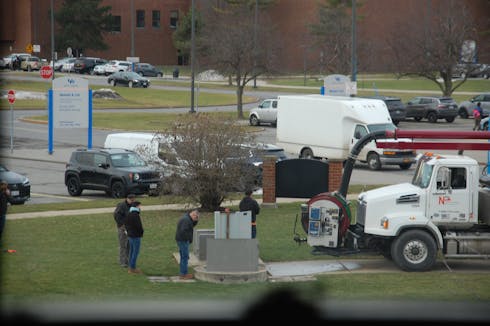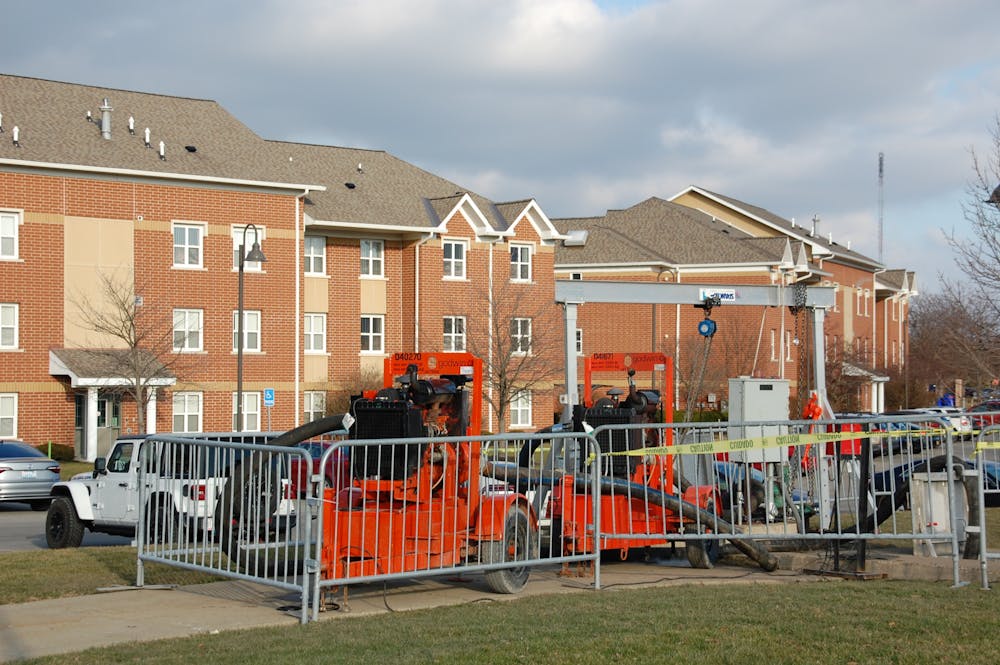Constant engine noise and diesel fumes from a temporary sewage pump drew complaints from South Lake Village residents after the pumps that remove sewage from the on-campus apartment complex failed late last week. The failed pumps were replaced this week.
A buildup of disposable wet wipes clogged the valves of the lift station’s two pumps, causing them to fail, Campus Living spokesperson Bill Paterson said in an email. The backup sent sewage into a ground-floor apartment, a person familiar with the situation who asked not to be named told The Spectrum. When the pumps failed, maintenance workers installed a diesel-powered temporary pump to keep sewage flowing for the complex’s 552 residents.
Since South Lake Village is at a lower elevation than the rest of UB’s North Campus, a lift station is needed to pump wastewater upward into the main campus sewer lines.

A buildup of disposable wet wipes clogged the valves of the lift station’s two pumps, causing them to fail. A similar failure caused by wipes occurred in November 2022.
Disposable wipes also caused a November 2022 failure, Paterson said. After that failure, a similar diesel-powered temporary pump ran 24 hours a day for nearly five months, until new permanent pumps were installed in April 2023.
Ten months later, those pumps have fallen victim to disposable wipes — and Paterson expects that the new pumps will also fail if residents continue to flush wipes.
“We expect the financial impact of the most recent incident to be in the range of $40,000 to $50,000 once all expenses are tallied,” he wrote.
That cost comes out of Campus Living’s operating budget, which is funded by residents’ rent, Paterson said.
Disposable wipes are often labeled as “flushable,” but they don’t break down like toilet paper. When wipes combine with grease and solid waste in the sewer, they create destructive and costly clogs and overflows. A UK government study found that disposable wipes contribute to 93% of sewer blockages.
“This incident serves as an important reminder for our residential community about the severe damage caused by flushing disposable wipes,” Paterson wrote. “[Wipes] must be disposed of in the trash and never flushed down the toilet.”
Sol Hauser is the senior news editor and can be reached at sol.hauser@ubspectrum.com





